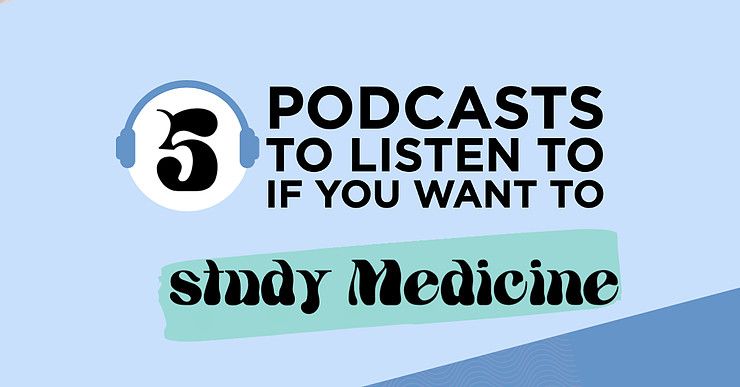1. Why Become a Doctor? Junior Doctors: A Matter of Life and Death
"With great power comes great responsibility" is a phrase most of us are familiar with, from when Uncle Ben speaks to Peter Parker (aka Spider-Man), but it can also be said about doctors too! Doctors are in the privileged position to make important life and death decisions; however, they are equally responsible for any consequences arising from such decisions.
This podcast details the less widely known hardships of doctors. A junior doctor speaks about her own experiences and the social and legal repercussions doctors face when treating patients. Doctors are not superhuman, and can make ‘mistakes’ too, this doctor recalls the guilt she felt when a patient took a turn for the worse after being discharged by her and how she manages negative emotions when receiving a patient complaint.
Working regularly under immense pressure, junior doctors must not only balance managing the health of patients, but also their own.
Being a doctor is not so glamorous after all.
2. Everyday Emergency: Yemen: “A Devastating, Unjust Violence”
The charity Médecins Sans Frontières (MSF), or more commonly known as Doctors Without Borders have created a podcast discussing the work they do in warzones. In this episode, British anaesthetist Elma Wong shares the challenges she faced in the town seized by war, Mocha, Yemen. She describes witnessing mass casualty events almost unheard of in the UK and having to treat patients under intense pressure. Healthcare teams work throughout day and night, in the background of relentless, violent airstrikes and bombing. With limited resources and people, medics must be creative, resilient and confident. This is truly what it means to be at the frontlines.
Opportunities of working abroad where healthcare systems are broken by either nature or man are worth considering when you are a doctor. The intense but very much rewarding work not only saves the lives of those most in need, but also, in the words of Dr Wong, “shape and develop you as a person”.
3. Inside Health: High Blood Pressure
As a medical student and doctor, you see countless patients a day with a high blood pressure, also known as hypertension. Blood pressure consists of the pressure at which your heart pumps blood out at (systolic pressure) and the resistance to the flow of blood in vessels (diastolic pressure).
It is important to have a good understanding of what hypertension is, and how it affects patients’ lives, given that roughly over a quarter of people in the UK suffer from it. Hypertension is a major risk factor for heart attacks, strokes, and heart and kidney failure; therefore, it needs to be managed well to prevent complications.
This podcast discusses what is the ideal blood pressure for both men and women, and when and how can clinicians intervene. It then goes on to recommend the best way to take a blood pressure reading and interpret the results. This is a necessary skill all medics should have polished. Knowing how to do it will greatly prepare you for your clinical placements!
4. How to Start a Project That Could Actually Change Something
The team at Sharp Scratch, made up of a group of medical students invite guests to discuss medicine-related topics, and produce a string of fun, casual and educational podcasts about medicine. In this episode they discuss their own experiences of research and starting projects. Not only can research improve the delivery of healthcare, it can also be fulfilling, although often at times as a student you may feel lost as to what to do. Guest speaker and medical student Sophie from Dundee speaks about a highly successful quality improvement project she undertook, which helped redesign her local hospital’s Emergency Department.
This podcast highlights the numerous opportunities beyond curriculum you can get involved in as a medical student. For any aspiring medics, having a think of what projects you’d be interested in is a good first step!
Australian plastic surgeon Lily Vrtik discusses the variation in her work, from surgery, teaching and mentoring, to legal work. Outside of medicine she does martial arts and manages the Queensland Medical Orchestra. She speaks of her passion for music and how it has improved her career, helping her relate to patients and increased her quality of life. She emphasises the importance to have hobbies. Whilst medicine may be your goal in life, you should not limit yourself to only that!
Words: Gar Mun Lau
